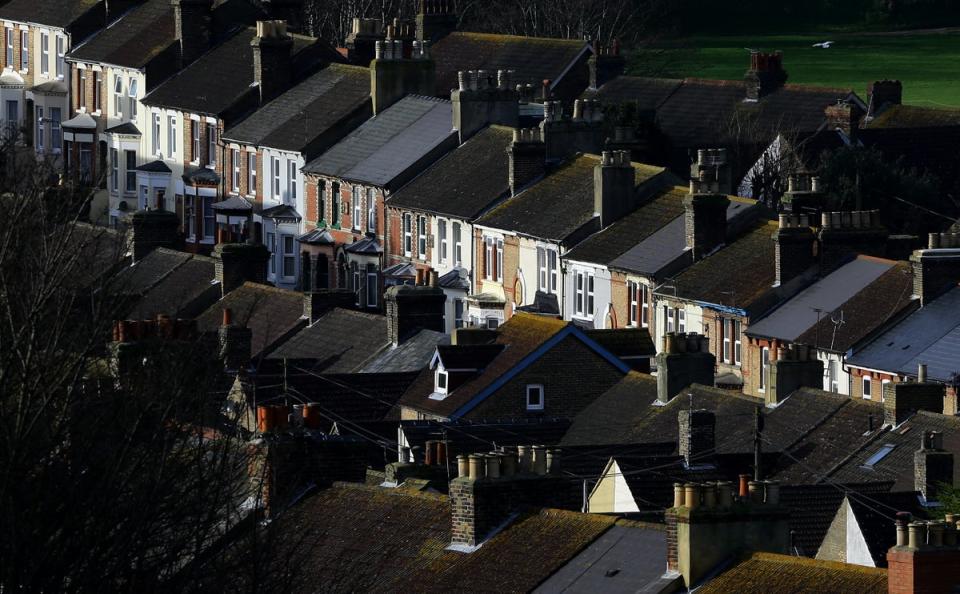Average UK house price jumps by £31,000 in a year

The average house price was £31,000 higher in April than a year earlier, according to Office for National Statistics (ONS) figures.
Across the UK, the typical property value in April stood at £281,000 in April, which was 12.4% higher than a year earlier.
Some property professionals pointed to more recent figures indicating a softening in the housing market.
They also highlighted a nervousness about taking on debt when it is unclear when the living costs surge will start to level out.
ONS figures also released on Wednesday showed that Consumer Prices Index (CPI) inflation rose from 9% in April to 9.1% in May.
UK average house prices increased by 12.4% in the year to April 2022 https://t.co/KPqt8QilcH
⬆️ Up from 9.7% in March 2022.— Office for National Statistics (ONS) (@ONS) June 22, 2022
The pace of annual house price growth accelerated in April from 9.7% in March.
In March, the average UK house price had been £278,000.
Average house prices in England, Scotland and Wales all hit record levels in April, the ONS said.
House prices typically increased over the year in England to £299,000 (an 11.9% annual increase), in Wales to £212,000 (16.2%), in Scotland to £188,000 (16.2%) and in Northern Ireland to £165,000 (10.4%).
The South West was the English region with the highest annual house price growth in April, with average prices increasing by 14.1% annually.
The lowest annual house price growth was in London, where average prices increased by 7.9% over the year to April.
The average house price in London remained the most expensive of any region in the UK, with an average price of £530,000 in April.
This declining market sentiment is yet to bubble to the surface
Michael Bruce, Boomin
Jason Tebb, chief executive officer of property search website OnTheMarket.com, said since the ONS’s latest house price data: “Evidence of a rise in the number of new instructions means we are seeing the beginning of an inevitable rebalancing of supply and demand.”
Jeremy Leaf, a north London estate agent and a former residential chairman of the Royal Institution of Chartered Surveyors (Rics), said the fact the report deals with figures from a couple of months ago “means it is not yet showing the softening in demand picked up by other reports over the past few weeks.
“We are seeing increasing nervousness about taking on debt at a time when buyers and sellers have no real clue as to when and how the rising cost of living will start to level out.
“Nevertheless, continuing lack of choice and strong employment prospects means there is still little chance of significant price changes over the next few months at least.”
Nicky Stevenson, managing director of estate agent group Fine & Country said: “Gains are being driven in part by equity-rich homeowners looking to trade up.”
Alex Lyle, director of Antony Roberts estate agency based in Richmond, London, said: “Large family houses in the £1.5 million-plus bracket are still going to best and final offers but things that need work are more of a struggle as people are nervous about rising building costs. Flats are also sticking, especially those with no outside space.”
Michael Bruce, CEO and founder of property website Boomin, said: “It’s important to remember that while sold prices provide the most concrete health check of the UK property market, they are reported on a lag.
“So while the market remains apparently unphased by a spate of base rate jumps and consequential impact this is likely to have on the spending power of UK buyers, the reality is that this declining market sentiment is yet to bubble to the surface.
“However, while these growing economic headwinds may rock the boat of house price growth, sustained and robust levels of buyer demand, coupled with a shortage of stock, are sure to prevent a significant drop.”

 Yahoo Finance
Yahoo Finance 